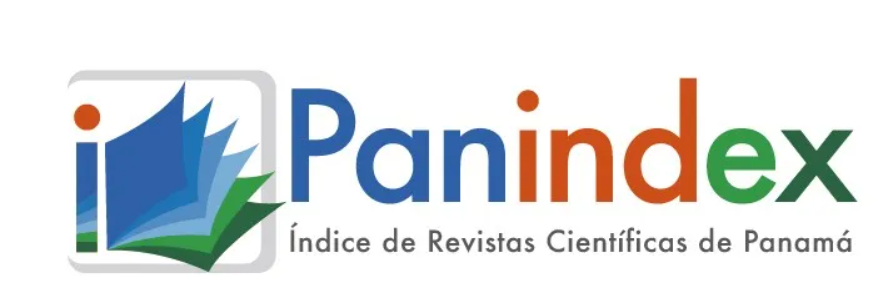Manuscripts sent to SALUTA Magazine must be original and unpublished and must not be simultaneously in the process of publication in other magazines, compilations or any other means of publication. The content of the publications and the links suggested in them are the sole responsibility of the authors and not of the METROPOLITAN UNIVERSITY OF EDUCATION, SCIENCE AND TECHNOLOGY
(UMECIT) or the magazine SALUTA. They are protected by international copyright laws as well as the logos of UMECIT AND SALUTA MAGAZINE, hence their reproduction is totally prohibited. The copyright will belong to the UMECIT.
Under a Creative Commons Attribution License authors may share work with acknowledgment of authorship of the work and initial publication in this journal.



Abstract
The main objective of the work is to review the state of the scientific literature focused on an educational program to improve the level of knowledge about diabetes in diabetic patients in time of COVID-19, as confirmed by an exhaustive review of the information published on the theme. The study material was obtained through searches carried out in the main databases: Psycinfo, Psycodoc and CSIC, as well as in the archives of the American Diabetes Association (ADA). It is a bibliographic research study in which productivity rates and contents are analyzed, obtaining relevant information on current lines of research and work. Data were obtained through a comprehensive review using the MEDLINE and BIREME bibliographic databases. In addition, government publications (Ministry of Health), conference reports, and meeting documents were identified by communicating with government and non-government organizations and other institutions. Incidence and prevalence rates were adjusted for age and sex, when possible, by the direct method using Segi’s world population as the standard. The 95% confidence intervals were calculated using the Poisson distribution or the normal distribution. Between the results have Diabetes in the time of COVID-19 represents a major public health problem in the Americas and there is evidence that its prevalence is increasing in some countries. Conclusions. The main conclusion reached has been the confirmation that an educational program will improve the level of knowledge about diabetes in diabetic patients in time of COVID-19. Since most Latin American and Caribbean nations are experiencing a demographic transition, the prevalence of diabetes is expected to continue to increase rapidly soon. Despite the economic limitations faced by the countries of the Americas in the time of COVID-19, there is a clear need to carry out more efforts in prevention and control of diabetes through Educational Programs aimed at Diabetic patients.
Keywords
References
Organización Mundial de la Salud. Diabetes mellitus: informe de un grupo de estudio de la OMS sobre diabetes mellitus. Ginebra: OMS; 1985. (Serie de Informes Técnicos de la OMS No. 727).
Barceló A, Daroca MC, Rivera R, Duarte E, Zapata A. Diabetes in Bolivia. Rev Panam Salud Publica 2001;10(5):318-323.
Comité de Expertos en Diagnóstico y Clasificación de Diabetes Mellitus. Informe del Comité de Expertos en Diagnóstico y Clasificación de la Diabetes Mellitus. Diabetes Care 2000; 23 (Sup. 1): 54-55.
De Almeida-Pititto B., Dualib P.M., Zajdenverg L., Rodrigues Dantas J., Días de Souza F., Rodacki M. Severity and mortality of COVID-19 in patients with diabetes, hypertension and cardiovascular disease: A meta-analysis. Diabetol Metab Syndr. 2020;12:75. [PMC free article] [PubMed] [Google Scholar].
Guan W.J., Ni Z.Y., Hu Y., Liang W.H., Ou C.Q., He J.X. Clinical characteristics of coronavirus disease 2019 in China. N Engl J Med. 2020;382:1708–1720. [PMC free article] [PubMed] [Google Scholar]
King H, Rewers M. Estimaciones mundiales de la prevalencia de diabetes mellitus e intolerancia a la glucosa en adultos. Grupo ad hoc de la OMS para la presentación de informes sobre diabetes. Diabetes Care 1993; 16 (1): 157-177.
LaPorte R, Matsushima M, Yue-Fong Chang. Prevalencia e incidencia de diabetes mellitus insulinodependiente. En: Grupo Nacional de Datos sobre Diabetes. Diabetes en Estados Unidos. Bethesda, Maryland, Estados Unidos de América: Institutos Nacionales de Salud; 1995, págs. 34-46. (Publicación de los NIH No. 951468).
Organización Mundial de la Salud. Definición, diagnóstico y clasificación de la diabetes mellitus y sus complicaciones: informe de una consulta de la OMS. Ginebra: OMS; 1999. (OMS / NCD / NCS 99.2).
Ragoobirsingh D, Lewis-Fuller E, Morrison EY. El estudio de diabetes de Jamaica: un protocolo para el Caribe. Diabetes Care 1995; 18 (9): 1277-1279.
Remuzzi A., Remuzzi G. COVID-19 and Italy: What next? Lancet. 2020;395:1225– 1228. [PMC free article] [PubMed] [Google Scholar]
Memish Z.A., Perlman S., van Kerkhove M.D., Zumla A. Middle East respiratory syndrome. Lancet. 2020;395:1063–1077. [PMC free article] [PubMed] [Google Scholar]
Rubino F., Amiel S.A., Zimmet P., Alberti G., Bornstein S., Eckel R.H. New-onset diabetes in COVID-19. N Engl J Med. 2020;383:789–790. [PMC free article] [PubMed] [Google Scholar]
Siemiatycki J, Colle E, Aubert D, Campbell S, Belmonte MM. La distribución de la diabetes mellitus tipo 1 (insulinodependiente) por edad, sexo, tendencia secular, estacionalidad, grupos de tiempo y grupo de espacio-tiempo: evidencia de Montreal 1971- 1983. Am J Hygiene 1986; 124: 545-560.
Segi M. Mortalidad por cáncer en sitios seleccionados en 24 países (1950-57). Sendai: Facultad de Medicina de la Universidad de Tohuku; 1960.
Wu F., Zhao S., Yu B., Chen Y.M., Wang W., Song Z.G. A new coronavirus associated with human respiratory disease in China. Nature. 2020;579:265–269. [PMC free article] [PubMed] [Google Scholar]
Yang X., Yu Y., Xu J., Shu H., Xia J., Liu H. Clinical course and outcomes of critically ill patients with SARS-CoV-2 pneumonia in Wuhan. China: A single-centered, retrospective, observational study. Lancet Respir Med. 2020;8:475–481. [PMC free article] [PubMed] [Google Scholar]
Downloads
Publication Facts
Reviewer profiles N/A
Author statements
- Academic society
- Universidad Metropolitana de Educación, Ciencia y Tecnología
- Publisher
- Universidad Metropolitana de Educación, Ciencia y Tecnología



















